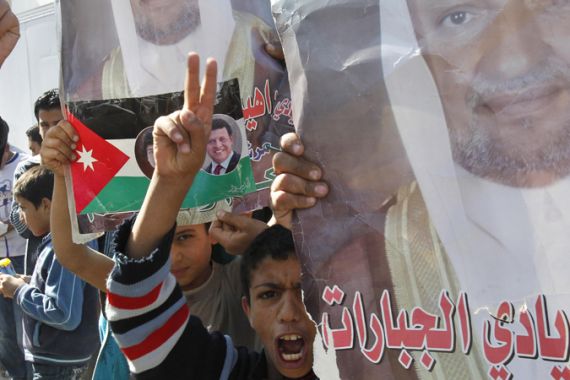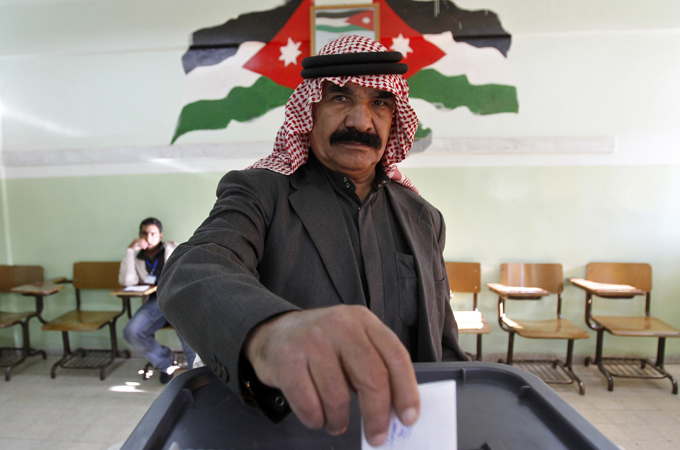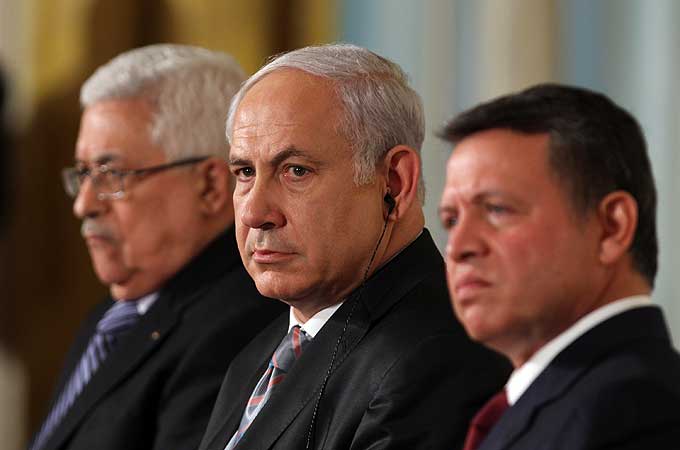Jordan loyalists sweep election
Supporters of King Abdullah II win majority of seats in assembly, in poll boycotted by opposition Islamic Action Front.

 |
| The opposition Islamic Action Front disputed the official turnout figure of 53 per cent [Reuters] |
Loyalists of King Abdullah II have won a majority of seats in Jordan’s next parliament, in an election that the opposition Islamic Action Front (IAF) boycotted in protest against electoral laws they said were unfair.
Tuesday’s vote saw 763 candidates vying for 120 seats in the lower house of parliament, in which they will serve a four-year term.
Wednesday’s official results showed that most of the house will be filled by loyalists and tribal-linked candidates likely to continue Abdullah’s pro-Western policies.
The figures showed 17 of those elected were from opposition political parties, not including the IAF, and that 78 MPs were newcomers to the house.
Officials said the turnout was 53 per cent, but the IAF, the political wing of the Muslim Brotherhood in Jordan, disputed the figure, saying most voters had stayed away. Turnout in Amman, the capital, was just 34 per cent.
The outcome of the election ensures Abdullah will encounter little opposition in the legislature but there are signs of growing unrest on the streets.
Many Jordanians are grappling with poverty and are increasingly coming to resent the government’s failure to confront Israel more forcefully over stalled Middle East peace efforts.
There were 53 violent incidents across the country during Tuesday’s voting, including the killing of a 25-year-old man in a shootout in Imraeh, a small town near the southwestern city of Karak, between supporters of rival candidates.
Police in Amman had to use tear gas to disperse crowds of clashing political rivals.
There was a fresh round of clashes in Imraeh on Wednesday with no reports of injuries.
Flagging economy
Taher Masri, the president of Jordan’s upper house, which is appointed by the king, said: “Voters have showed their desire for change by electing new faces, which is a positive thing.
“People chose those who are professional in public work, and they did not vote for those who have focused on their personal interests and not parliamentary work.”
Among the winners were 20 former cabinet ministers, with many of the newcomers from Bedouin tribal families that form the bedrock of support for Abdullah.
“These are not new lawmakers; they’re cabinet ministers, relatives of government officials or people the state wanted to win,” said Subhi Abu Hamad, a 23-year-old street vendor, reflecting widespread pessimism that the vote would bring any change.
Jordan’s flagging economy, the crawling pace of political reforms and the stalled Israeli-Palestinian peace effort were some of the main campaign issues.
“The new deputies should work hard to improve the economy and help the poor find jobs to feed their children,” said Nasser Khalayleh, a 39-year-old Amman bookkeeper .
The new parliament will help Abdullah keep a steady course on his central foreign policy goals: continuing his strong alliance with the US and limiting criticism of Israel.
Palestinian representation
About half of Jordan’s six million people are of Palestinian families, displaced by Israel following two Middle East wars since 1948.
 |
| The new parliament will help Abdullah, right, continue his foreign policy goals [AFP] |
Nisreen el-Shamayleh, Al Jazeera’s correspondent in Amman, said that since 1989, Jordanians of Palestinian origin in parliament have never exceeded 20 per cent.
She said Tuesday’s elections had led to a sharp decrease in Palestinian representation in parliament down to around 12 per cent.
The IAF boycott surrounded an electoral law adopted in May that it said gave less weight to votes cast in areas where it has the most support.
Only one of its candidates, Ahmed Qudah – who went against the boycott and ran as an independent – won a seat in the new parliament.
The group had six seats in the previous parliament, its power far reduced from the majority it last held in 1989.
Hamza Mansour, the leader of the IAF, said the new parliament is “worse than the last one because many won through their family connections and by spending money to buy votes that could have been given to the poor”.
‘Credible’ vote
The government agreed, for the first time, to allow 250 international observers to monitor the election alongside about 3,000 local representatives of non-government organisations.
The International Republican Institute, an organisation funded by the US government, said in a statement that the vote was “credible, an improvement on previous elections and a significant step forward for the Middle East”.
However, it also criticised the electoral law, saying: “There remains much room for improvement in Jordan’s elections. Jordan’s new election law should strengthen representation for all Jordanians.
“The over-representation of rural districts is accentuated by the controversial single non-transferable vote system, thus further diluting the representation of urban voters.”
Jordan has been without a parliament since November 2009 when Abdullah dissolved a 2007 legislature and called an election two years early after press allegations about ineffectiveness and corruption among MPs.